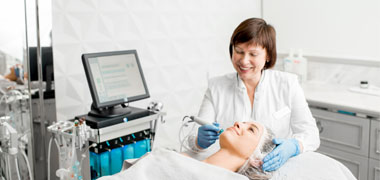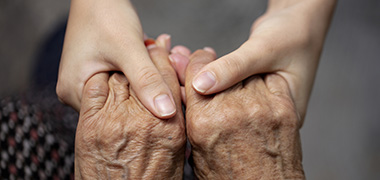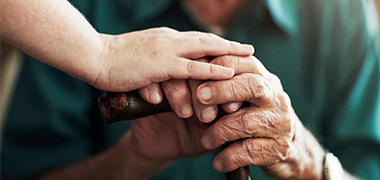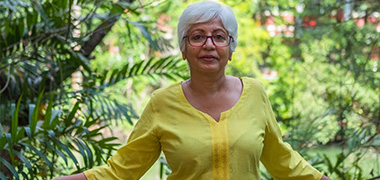


English Language Tests: Which One Should You Take?
29th September 2025
How to Choose the Right English Language School in Australia
16th September 2025
10 reasons to study English in Australia
1st September 2025
Adapting to Change: AI and the Future of Jobs in Australia
19th August 2025
Why study English
12th August 2025
Thinking of hiring an apprentice or trainee? Here's what you need to know
28th July 2025
A guide to English proficiency grading
22nd July 2025
How to start a career in real estate
11th July 2025
Getting started in the pharmacy industry
7th July 2025
Which English course is right for me?
27th June 2025
How do I apply for an English course?
2nd June 2025
Top tips for making the most of your Australian study experience
20th May 2025
What visa do I need to study in Australia?
13th May 2025
Where is the best place to study in Australia?
5th May 2025
What you need to study in Australia
24th April 2025
A Complete Guide to Certificates II & III in Security Operations
24th February 2025
Certificate III in Pathology Collection: Everything You Need to Know
10th February 2025
A Beginner's Guide to Laboratory Technician Training in Australia
7th February 2025
How to get your first job in the fitness industry
29th January 2025
Industry Recognised Free Online Cyber Security Courses
29th January 2025
How to become a qualified Occupational Therapist or Physiotherapist in Australia
23rd December 2024
How to get your first job in IT
14th November 2024
How to start a Career in Human-Centred Design
21st October 2024
A Complete Guide to Becoming a Clinical Facilitator
21st October 2024
Career Pathways for Graduates After Studying a Diploma of Nursing and a Bachelor of Nursing
4th October 2024
Expert Advice: How to get a Job in Cyber Security
25th September 2024
A Comprehensive Guide to Casual and Temporary Work in the Aged Care Industry
18th September 2024
A Comprehensive Guide to Working With Children Checks for Students
30th July 2024
Expert advice: Getting your first job in childcare
16th July 2024
How to become an interior designer in Australia
23rd May 2024
Is Primary School Teaching Right for You?
22nd April 2024
Navigating the Australian Wallet: Budgeting Tips for International Students in 2024
5th February 2024
Choosing a security licence course in Australia: A step-by-step guide for jobseekers
10th November 2023
Certificate III in Early Childhood Education and Care: Empowering a Stay-at-Home Mum's Career Journey
30th May 2023
How do I become a sales manager?
22nd December 2022
What Does an ESL Teacher Do?
21st December 2022
What are the Top 3 Skills of an Executive Assistant?
21st December 2022
How to Become an Early Childhood Teacher in Australia
13th December 2022
What Makes a Good Team Leader?
30th November 2022
Why is Nursing a Good Career Choice in Australia?
25th November 2022
What Skills Does a Data Analyst Need?
25th November 2022
What is the Difference Between a Psychologist and Psychiatrist?
25th October 2022
What is the Role of a Business Analyst?
14th October 2022
Why Choose a Career in Human Resources?
5th October 2022
Early Childhood Teachers vs Early Childhood Educators. Is there a difference?
27th September 2022
How To Become a Primary School Teacher in Australia
24th September 2022
What does an Occupational Therapist do?
15th September 2022
Most popular transport and logistics courses
1st August 2022
Most popular tourism and hospitality courses
26th July 2022
Most popular trades courses
26th July 2022
Most popular retail courses
21st July 2022
Most popular sport courses
21st July 2022
Most popular manufacturing courses
19th July 2022
Most popular real estate courses
19th July 2022
Most popular information technology courses
10th July 2022
Most popular law and legal services courses
10th July 2022
Most popular health courses
29th June 2022
Most popular horticulture courses
29th June 2022
Most popular government and public sector courses
21st June 2022
Most popular hair and beauty courses
21st June 2022
Most popular finance courses
13th June 2022
Most popular security courses
13th June 2022
Most popular engineering courses
12th June 2022
Most popular environment and sustainability courses
12th June 2022
Most popular early childhood courses
6th June 2022
Most popular education courses
6th June 2022
Most popular design courses
30th May 2022
Most popular music and dance courses
17th May 2022
Most popular photography courses
9th May 2022
Most popular community services courses
3rd May 2022
Most popular business courses
28th April 2022
Most popular building and construction courses
20th April 2022
Most popular animal welfare and veterinary courses
12th April 2022
Most popular agriculture courses
8th April 2022
Most popular TAFE courses
1st April 2022
What can you do with a Graduate Diploma of Dermal Science?
13th March 2022
What can you do with a Certificate IV in Security Management?
13th March 2022
What can you do with a Certificate IV in Business (Administration)?
7th March 2022
What can you do with a Certificate III in Legal Services?
7th March 2022
What can you do with a Certificate IV in Legal Services?
3rd March 2022
What can you do with a Certificate IV in Allied Health Assistance (Physiotherapy)?
3rd March 2022
What can you do with a Certificate IV in Entrepreneurship and New Business?
22nd February 2022
What can you do with a Diploma of Payroll Services?
22nd February 2022
What can you do with a Certificate IV in Allied Health Assistance (Nutrition and Dietetics)?
16th February 2022
What can you do with a Diploma of Building and Construction (Building)?
16th February 2022
What can you do with a Certificate IV in Education Support?
11th February 2022
What can you do with a Diploma of Paralegal Services?
11th February 2022
What can you do with a Certificate III in Hairdressing?
4th February 2022
What can you do with a Certificate IV in Marketing and Communication?
4th February 2022
The Comprehensive Guide to Completing a VET Qualification at School
3rd February 2022
What can you do with a Diploma of Practice Management?
27th January 2022
What can you do with a Diploma of Clinical Coding?
27th January 2022
What can you do with an Advanced Diploma of Conveyancing?
24th January 2022
What can you do with a Diploma of Human Resource Management?
24th January 2022
What can you do with a Certificate III in Supply Chain Operations?
24th January 2022
What can you do with a Certificate III in Business (Medical Administration)?
11th January 2022
What can you do with a Certificate III in Health Administration?
11th January 2022
How to start a career in Practice Management
11th January 2022
What can you do with a Certificate IV in Finance and Mortgage Broking?
11th January 2022
What can you do with a Certificate IV in Real Estate Practice?
11th January 2022
What can you do with a Graduate Diploma of Cosmetic Nursing and Injectables?
10th January 2022
What can you do with an Advanced Diploma of Cosmetic Dermal Science?
10th January 2022
What can you do with a Certificate III in Business (Administration)?
10th January 2022
What can you do with a Certificate IV in Building and Construction (Building)?
6th January 2022
What can you do with a Certificate III in Individual Support (Home and Community Care)?
6th January 2022
What can you do with a Certificate II in Security Operations?
5th January 2022
What can you do with a Certificate IV in Health Administration?
5th January 2022
How to start a career as a Medical Receptionist
7th December 2021
How to start a career as a Dental Assistant
7th December 2021
How to start a career in Education Support and Assistance
7th December 2021
How to start a career as a Personal Assistant
2nd December 2021
What can you do with a Certificate III in Cleaning Operations?
2nd December 2021
How to start a career in Early Childhood Education
27th November 2021
How to start a career in Conveyancing
27th November 2021
What can you do with a Certificate III in Pathology Collection?
4th November 2021
How to start a career in Warehousing
3rd November 2021
How to start a career in Logistics
14th October 2021
What can you do with a Diploma of Accounting?
29th September 2021
Careers for people who love the outdoors
14th September 2021
What can you do with an Advanced Diploma of Business?
9th September 2021
What can you do with a Certificate III in Health Services Assistance?
7th September 2021
How to start a career in Veterinary Nursing
7th September 2021
5 jobs for people who like working with children
31st August 2021
What can you do with a Certificate IV in Allied Health Assistance?
31st August 2021
How to start a career in Dog Training
26th August 2021
What can you do with a Certificate IV in New Small Business?
17th August 2021
How to start a career in Mental Health
5th August 2021
5 careers with high job satisfaction
5th August 2021
What can you do with a Certificate IV in Youth Work?
4th August 2021
How to start a career in Social Media Marketing
4th August 2021
5 jobs for people over 60
21st July 2021
How to start a career as a Paralegal
20th July 2021
What can you do with a Certificate IV in Leadership and Management?
5th July 2021
What can you do with a Certificate IV in Human Resources?
5th July 2021
How to start a career in Legal Services
17th June 2021
5 Fun Career Paths that pay well
15th June 2021
What can you do with a Certificate IV in Allied Health Assistance (Occupational Therapy)?
15th June 2021
Jobs for mums returning to work
1st June 2021
What can you do with a Certificate IV in Business Administration?
1st June 2021
What can you do with a Certificate III in Fitness?
27th May 2021
How to start a career in Youth Work
25th May 2021
How to negotiate your salary
25th May 2021
How to start a career in Social Work
18th May 2021
How to change careers in your 30s
12th May 2021
What can you do with an Advanced Diploma of Leadership and Management?
6th May 2021
What can you do with a Diploma of Leadership and Management?
20th April 2021
How to start a career as a Legal Secretary
19th April 2021
How to start a career in Disability Care
12th April 2021
How to start a career in Aged Care
23rd March 2021
How to start a career in Social Housing
16th March 2021
What can you do with a Certificate III in Dental Assisting?
4th March 2021
What can you do with a Diploma of Business?
3rd March 2021
What can you do with a Certificate IV in Information Technology?
17th February 2021
What can you do with a Diploma of Community Services (Case Management)?
8th February 2021
What can you do with a Diploma of Nursing?
2nd February 2021
Helping your child find a career they’ll love
25th January 2021
What can you do with a Certificate IV in Ageing Support?
20th January 2021
What can you do with a Diploma of Social Media Marketing?
13th January 2021
What can you do with a Diploma of Mental Health?
13th January 2021
What can you do with a Certificate III in Hospitality?
14th December 2020
What can you do with an Advanced Diploma of Community Sector Management?
1st December 2020
What can you do with a Certificate III in Horticulture?
18th November 2020
What can you do with a Certificate IV in Disability?
12th November 2020
What can you do with a Certificate IV in Alcohol and Other Drugs?
4th November 2020
What can you do with a Diploma of Youth Work?
2nd November 2020
What can you do with a Certificate IV in Property Services (Real Estate)?
27th October 2020
What can you do with a Certificate IV in Environmental Management and Sustainability?
27th October 2020
What can you do with a Diploma of Quality Auditing?
27th October 2020
JobTrainer: What does it mean for me?
19th October 2020
What can you do with a Certificate IV in Fitness?
15th October 2020
What can you do with a Certificate III in Retail?
13th October 2020
What can you do with a Certificate IV in Leisure and Health?
29th September 2020
What can you do with a Certificate III in Beauty Services?
29th September 2020
What can you do with a Certificate III in Individual Support (Disability)?
22nd September 2020
What can you do with a Diploma of Legal Services?
22nd September 2020
What can you do with a Certificate IV in Training and Assessment?
10th September 2020
How to start a career in counselling
7th September 2020
What can you do with a Certificate IV in Community Services?
1st September 2020
What can you do with a Certificate III in Business Administration (Medical)
1st September 2020
How to start a career in community management
18th August 2020
What can you do with a Certificate IV in Accounting and Bookkeeping?
18th August 2020
What can you do with a Certificate III in Individual Support (Ageing)?
4th August 2020
How to start a career in child welfare
28th July 2020
How to start a career in case management
20th July 2020
What can you do with a Diploma of Early Childhood Education and Care?
14th July 2020
How to start a career in the treatment of addiction
13th July 2020
How to get into hairdressing
30th June 2020
How to get into beauty therapy
20th June 2020
The Ultimate Guide to Podcasting (Updated 2020)
17th April 2020
How to make a career change
7th April 2020
Digging into the 2020 AFR Top 100 Graduate Employers List
2nd March 2020
Anything but binary
26th February 2020
How to become a dental assistant
24th February 2020
10 best work-from-home careers in Australia
17th February 2020
What the coronavirus means for university study in Australia
6th February 2020
What can you do with a Certificate IV in Project Management Practice?
4th February 2020
What is upskilling and why do you need it?
28th January 2020
Online courses: study tips for Australian students taking courses online
23rd January 2020
What can you do with a Certificate III in Information, Digital Media and Technology
15th January 2020
3 online courses that can help you tackle climate change
14th January 2020
What can you do with a Certificate III in Allied Health Assistance?
8th January 2020
5 tips for asking for a raise
18th December 2019
Qualifications to level up your ICT career
16th December 2019
What do social workers do?
11th December 2019
How to get your employer to pay for your learning
10th December 2019
How to prepare for a job interview
4th December 2019
What can you do with a Certificate III in Business?
28th November 2019
Career Spotlight: Computer Network Professionals
26th November 2019
What can you do with a Certificate III in Individual Support?
13th November 2019
What can you do with a Diploma of Project Management?
12th November 2019
How to become a multimedia designer
4th November 2019
What can you do with a Certificate IV in Mental Health?
28th October 2019
Do I need a Certificate IV In Work Health and Safety?
22nd October 2019
6 Interesting careers and how to get started
22nd October 2019
Redundancy tips and strategies
17th October 2019
What can you do with a Certificate III in Education Support?
15th October 2019
Career Spotlight: Accounting and Taxation Professionals
9th October 2019
What do massage therapists do?
9th October 2019
Career spotlight: Advertising and marketing professionals
2nd October 2019
Top 3 tips for freelancing
2nd October 2019
How to get started in Information and Communications Technology (ICT)
26th September 2019
Australia's fastest growing industries in the next five years
19th September 2019
Career spotlight: Hospitality professionals
17th September 2019
What can you do with a Diploma of Counselling?
11th September 2019
Employment options for seniors
10th September 2019
Exercise tips for seniors
29th August 2019
Benefits of education for retirees and seniors
27th August 2019
Career Spotlight: Early childhood educators and teachers
27th August 2019
Further your career with a Diploma of Community Services
20th August 2019
What can you do with a Certificate III in Community Services?
14th August 2019
How to become a Finance Broker in Australia
14th August 2019
How do I get started as a professional web developer?
7th August 2019
What can you do with a Certificate III in Business Administration?
30th July 2019
How to resign from your job
23rd July 2019
Fast-track your qualification with Recognition of Prior Learning (RPL)
18th July 2019
What is the Australian Qualifications Framework (AQF)?
3rd July 2019
Are you studying with a Registered Training Organisation (RTO)?
2nd July 2019
5 reasons why you need to study HR online right now
18th June 2019
The Power Of Delegation
1st June 2019
New Country Universities Centre opening February 2019
3rd January 2019
Christmas Gift Guide for Students
11th December 2018
How to carve a Halloween Jack O'Lantern Pumpkin
24th October 2018
The results are in, and these are Australia’s best jobs
9th September 2018
How to set up a sweet study space
7th August 2018
How your idea could change your life…and the lives of others
27th July 2018
What can you do with a Certificate III in Early Childhood Education and Care?
15th July 2018
What does the 2018 federal budget mean for students and education?
2nd July 2018
7 reasons to start a career in community services
15th June 2018
The Pros and Cons to Studying Abroad
6th June 2018
Mjolnir Breaking Bones In Real-Life Surgery
19th April 2018
Embracing Progress and How AR and VR Could Improve Education
29th January 2018
A Guide to Bitcoin Jobs
29th January 2018

